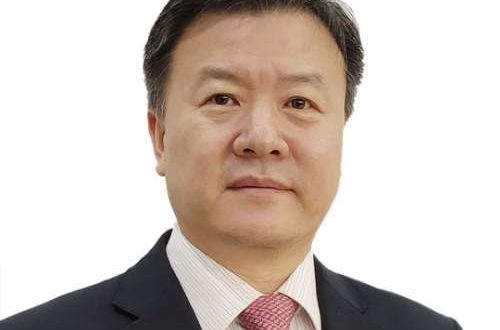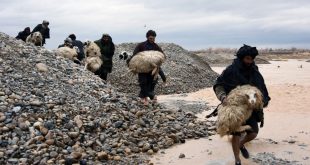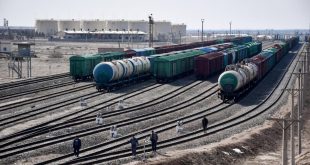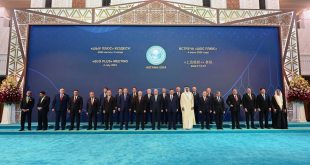By Wang Yu, Chinese Ambassador to Afghanistan
With groundless accusations about the human rights situation in Chinese Xinjiang and China’s governance policy there and rampant vilification of Chinese anti-terrorism and de-radicalization interventions, the so-called Uyghur Human Rights Policy Act passed recently by the US House of Representatives is a serious interference in the internal affairs of China. The draft bill had been in the House and the Senate for more than a year, with repeated additions and deletions of certain contents over and again. It’s been rather obvious for all that the American legislators were just trying to find some clauses best suiting their interests. The act features arrogant interference in China’s internal affairs and sheer ignorance of the facts in Xinjiang. It is not about human rights at all. Some Afghan friends who have been to Xinjiang have kindly reminded me that what the US description is not at all what they saw there and totally misleading. Therefore, I would like to nail the lies in the Uyghur Act and talk about the real face of Xinjiang.
‘One million people are being held in forced labour in concentration camps in Xinjiang.’ This is utterly fake news. An investigation report published by an independent American news website not long ago argues that the rumor was prepared by a right wing organisation funded by the US government, NATO and various arms manufacturers. It was based on the blogs of some religious zealots and interviews of a handful of so-called experts. The number involved was one million at a time or three million at other times. All the people with a sense of justice or just common sense will only despise such groundless fabrication. By now, all participants in Xinjiang’s programme to teach them commonly used language, legal knowledge and professional skills and de-radicalize those formerly affected by religious extremism have completed their studies. As the next step, the education and training center will offer regular and routine training to willing grass-roots cadres and graduates in need.
‘Vocational skills education and training in Xinjiang is illegal imprisonment and ill-treatment of students.’ This is a deliberate distortion and fabrication by the US. Under the rule of law, a vocational skills education and training center was set up in accordance with national counter-terrorism laws and local by-laws to best help persons who had committed minor crimes and reach out to and inspire young people affected by extremism. At the training centre, the personal dignity of the trainees is fully protected against violation. The boarding rules allow the trainees to go home regularly, ask for leave when they feel necessary and enjoy freedom of correspondence. While strictly in line with the rule of law, the whole operation is also rich in humane details, demonstrating wisdom in social governance that addresses both the symptoms and root causes with comprehensive measures.
‘Education and training in Xinjiang involve ethnic, cultural and religious oppression.’ This is an American smear campaign again. The sole criterion of selection by the education and training centre is whether the candidate had been involved in an illegal or criminal act of terrorism or religious extremism. It has nothing to do with the person’s place of residence, ethnicity or faith. At the centre, all regulation and rules, curricula and canteen recipes are written in both the national commonly used language and the local ethnic minorities’ languages and the customs of all ethnic groups and their right to use their own languages are fully protected. Like all other educational institutions in China, the education and training centre in Xinjiang exercises separation between education and religion whereby students are not allowed to organize or participate in religious activities on campus. However, religious believers may decide on their own whether to participate in lawful religious activities while at home.
The above-mentioned lies are easily debunkable, but by repetition the American congressmen have even convinced themselves in the forgery and drafted the Uyghur Act accordingly. Besides these fabrications, many details of the act simply cannot withstand scrutiny. At the heart of the bill are ‘investigation findings’, with frequent modifications in different bill versions of specific cases involving obscure names. The so-called ‘facts’ listed in the act indicate no exact time, place or source of information but involve frequent uses of vague wordings such as ‘seem’. Obviously, the US does not cry out for human rights in Xinjiang as they have claimed. It just uses Xinjiang people in a disguised campaign to contain China.
There is a Chinese saying that ‘justice naturally inhabits man’s heart’. We are confident that the Chinese governance of Xinjiang is justified and commendable. Since the end of 2018, thousands of foreign envoys, officers of international organizations and media personnel from more than 90 countries and regions have visited Xinjiang. In their view, Xinjiang enjoys social stability, economic development, ethnic unity, religious harmony and cultural prosperity and people of all ethnic groups enjoy life in peace, happiness and freedom. At present, the autonomous region proudly features prosperity and stability. There has been no case of violence or terror in Xinjiang for three years in a row. In 2019, the region’s GDP topped USD196.9 billion, an increase of about 6% over the previous year. The per capita disposable incomes of urban and rural residents rose by about 5.5% and 9% respectively. With 645,000 people lifted out of poverty, the incidence of poverty dropped from 6.1% in the previous year to 1.2%. People of all ethnic groups have a growing sense of gains, happiness and security. Xinjiang has become one of the most stable and happy places to live for Muslims.
The US often praises itself as a ‘defender of human rights.’ In reality, the country has serious racial discrimination problems hard to resolve. In the economic sector, for example, the median weekly wage of full-time Afro-Americans and Hispanics is on average nearly 30-40% lower than that of white people. In the administration of justice, the police tend to adopt different approaches when dealing with people of different races and young men of African descent are 21 times more likely to be shot and killed by the police than their white peers. Recently, George Floyd, a black man, died after a white policeman held him down with a knee on his neck for eight minutes, sparking extensive protests against the injustice in many locations. In the COVID-19 pandemic having infected over 1.7 million and killed over 100,000 in the country, the black people, which account for 13% of the US population, take up 23% of all deaths. The American government has turned a deaf ear to the pains of its own people. As always, the exercise of double standards has been quite apparent. When rioters wreak havoc in Hong Kong, American politicians called their atrocities ‘a beautiful sight to behold’; when China fought terrorism in Xinjiang according to law, they never stopped at finger-pointing at the lawful actions. And then when social unrest broke out on American soil, the American government readily used violence and the President threatened with the ‘most vicious dogs and most ominous weapons.’ One can’t help but wonder How come the US, with its own numerous human rights problems, has garnered sufficient courage and confidence to pretend ‘love’ for Xinjiang and groundlessly accuse China?
It’s better to see once than to hear a hundred times. In recent years, many Afghan officials, journalists, teachers and students have visited Xinjiang and some of them have even been there many times. They have witnessed its prosperity, stability and rapid development and experienced in person a real Xinjiang very different from what the American media and politicians have been telling the world. I sincerely hope that more Afghan friends will visit Xinjiang and experience the wonderful place of great food and friendly people.
 Afghanistan Times
Afghanistan Times




